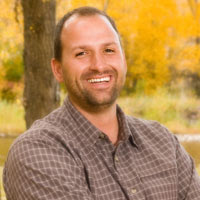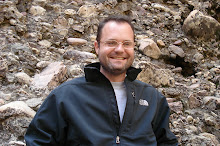
Its early spring of 2003. I’m riding in the middle seat of an old suburban down bumpy unimproved roads in Arizona’s Tonto National forest. The moonlight peeks through pine trees and adds flavor and stark views to our mid night jolting ride. All the “trail walkers,” or field instructors, are talking about how great the week was and how we can’t wait to file into a 24 hour Mexican joint for a seemingly long awaited meal. I’ve just finished my first week on “the trail” and it was unforgettable. I had worked with a girls group. We had made natural fire, caught and ate crawdads and hiked through beautiful streams and canyons. Conversations were inspiring and I was high on life.
Throughout the next week many asked me why the trail was so powerful. I gave a lot of answers, few of which I remember well. None of my answers adequately described what happened on my trail experience.
2 years later I’m serving as a program director for an international service NGO called Mali Rising.
The organization built schools in Mali, West Africa and directed some education-based projects in Guatemala.
After directing a dozen volunteers through the experience of building homes for widowed mothers, I find myself again enjoying inspiring conversation on a bumpy dark plane with a handful of now very close friends.
The experience was unforgettable, even life changing.
I again meet with the question “why was the trip so powerful.”
A year later, while working in a residential treatment center, I find myself frustrated because I can’t seem to produce the same feelings and experiences that happened so freely and naturally on the trail and with my NGO.
I later learned about a concept discussed in the sciences called fractional sublimation. Fractional sublimation refers to the process of stripping away superficial layers of an object until the core, essence, or sublime nature of the object or organism is revealed. Upon hearing the phrase my mind instantly took me to a file of memories in which I felt that I saw the sublime in others as I did on the trail and in Guatemala.
I now lead the Parent Workshop for the Aspiro Group and I have done my best to set it up in a way that can strip its participants of superficial pretense to allow families to see, recognize and appreciate the sublime in each other.
It’s the first morning of the workshop. The parents are hurrying, some running, some walking quickly towards their children. I lean against a pillar under a large awning in St George Utah. The backdrop is incredible.
Tall red rock mesas meet bright blue sky. The Parents have caught children in their arms now and I watch the parents reunite with their children for the first time in their treatment journey. Most of our students come angry with their parents, and yet, most are sincerely happy to see their families.
After a short ice breaker game, I walk the group up to the conference room. The group suddenly seems a little bigger now that I’m front and center. After giving a run down of the day I invite the participants to try to focus on applying the content of the workshop to themselves rather than focusing on how the content applies to everyone else in the family. The remark is met with warm laughs, probably because the statement rings true.
The workshop begins by exploring the implications of accusing emotions. I share examples from my marriage, family, and work relationships to illustrate that whenever I engage in blaming my problems on others, I simultaneously excuse, justify, or perhaps, even blind myself to my own shortcomings. This predicament has devastating implications. Imagine a parent that attributes the majority of the familial tension to the decisions and behaviors of a spouse or child, while the same child focuses on his parents’ shortcomings and refuses to see how his actions compare in magnitude to the mistakes of his parents. These accusing emotions not only halt family progress, they also exacerbate any present problems as each individual continues to make worse and worse decisions while justifying them by focusing on the problems of the other.
Throughout the day families are broken into small groups and coached through the process of reviewing failed patterns of communication and other failed attempts to solve problems. These small breakout groups have the potential to be disastrous so I am sure to stress the importance of communicating honestly and sensitively with the intent to help and not to hurt. I personally believe that most often people rise to the level of expectation put upon them. This is certainly the case at the parent workshop. While most families struggle to engage in productive dialogue at the beginning of the day, I find that most families are really able to recognize their part in conflict and experience a desire to make things better by working on themselves. It is inspiring to watch the layers of blaming emotions peel away as families start to see more of the beauty in themselves and each other.
We end the day by preparing everyone for a rock climbing and rappelling trip the next day. A few eyes bulge as I talk about the following day’s activities and from the look on their faces I know I’m going to need a few minutes just with the parents. After parents and children say goodbye for the evening, I offer to address any questions or concerns. Most parents don’t hesitate to take me up on my offer, in fact a few make it known that they will not be participating in anything to do with a rope, a cliff and gravity. We talk about the value of acknowledging and facing fear. We discuss the value of stepping out of our comfort zones. I remind them that many of their children have said the same things and made the same faces at me. It clicks with a few.
Others look unconvinced and we say goodbye.
The morning of the second day I arise at 6:00am. After a rush to shower and get out the door, I head straight to the parking lot outside the conference room to await some anxious parents. They start to trickle in only minutes after I show up. There is often the couple that says nothing… asks nothing… and avoids eye contact with me. There is often the mother or father who asks question after question. “Again, how often do you check the ropes… and who is setting them up?... Do they really know what they are doing?” There is the eager parent, the stubborn parent, the friendly parent, all gathered together on an early weekend morning, in an unfamiliar place to climb and rappel some basalt-stone cliffs. Everyone is here now and we file in to our cars and make the drive to Crawdad Canyon.
We arrive and parents and children embrace over a light breakfast. A chorus of interesting, yet typical, side conversations compete for my attention as I spread the schmear on my jalapeno cheese bagel. Afterwards our field director Jodi leads everyone over to the cliff side for some climbing instruction. I’m familiar with her spiel… she talks about the strength of the equipment, the importance of the belayer/climber relationship and a little about the technique of climbing. The sound of her voice takes the background as I watch the faces of parents during Jodi’s instruction. There is inevitably a parent or two with the “you’re kidding me…” face.
Sometimes I even detect the “uh-uh… no way!” face. I laugh inside… I imagine inviting my own mother rock climbing and grin at her “my-son-the-idiot expression.” I love today. I love watching what comes next.
Over the next few hours something special and something authentic happens. Sometimes it happens while on a climb, or sometimes on a rappel. There comes a point in climbing when every move begins to feel hard, maybe too hard, and you don’t know what to do next. If you’re anything like me then you’ll find your mind racing, yet stuck on a small circular track formed of a few self-defeating thoughts. Suggestions are given from the ground.
“Relax and breathe deeply” or “there is another hold, a better hold, only inches from where you currently are”. I find it interesting that these suggestions are almost always met with a frustrated resistance; and all energies go into providing reasons why such feedback is irrelevant, unattainable, or otherwise not useful, rather than on bettering their current situation. Despite the awkward tension between climber and coaches during the charged exchange, I love these moments. I know what’s happening because I’ve been there before, the mind perceives an impasse. Yet something special happens when we pass over a perceived impasse.
We feel fresh, powerful, and yet surprisingly humble, fully aware that others witnessed our struggle. So it goes with the rock climbing. I watch the stuck climber fight through his self-defeating thoughts until he reluctantly listens to the advice offered. As he does so, his vantage point changes if but slightly. New solutions and new options come to light. Efficacy is built as he slowly and more confidently inches towards the top of the climb.
All the while peeling away layers of the superficial to arrive at the top, and then the bottom, a little more himself… more authentic.
Throughout the morning I watch children coaching and encouraging their parents. I see a lot of hugs, high fives, and pictures. That doesn’t mean there aren’t families that really struggle throughout the process, but it makes the workshop all the more dynamic and provides me and the clinical team with concrete scenarios to process and work with.
After a packed morning we head off to lunch. Families eat together and this is my time with staff to enjoy a good meal and some laughs.
After Lunch we head back to the conference room and I divide up the group: Moms in one group, Dads in another, students in another and guides and therapist in the last. Each group has some time to connect and they are asked to write and perform an entertaining skit that teaches/comments on some of the principles that have been learned over the last two days. The skits are great and its nice to see everyone goof around a little and yet share some of their personal insight on the content of the workshop.
We end with a slideshow comprised of pictures of the students throughout their stay at Aspiro… Pictures of rappelling arches, navigating slot canyons, mountain biking and rock climbing, and a few of the parent workshop taken that very morning. I find myself impressed at the end of each workshop at the journey these families go through.
Afterwards parents and children hug, maybe cry a little, maybe laugh a little and they go their separate ways.
It feels like I’ve known everyone a lot longer than two days.
As I reflect on what makes Aspiro a powerful experience many answers come to mind. But from my experience there is nothing as deeply moving and meaningful as the process of watching individuals and families strip away layers of the superficial to reveal something more fundamental and authentic. Families that see the sublime in each other invite and sustain the sublime in each other.
















